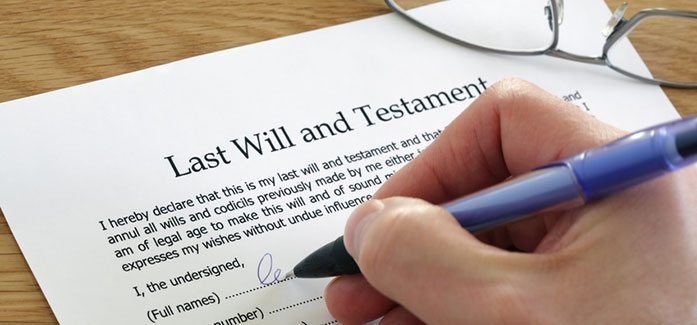If you are an adult with some assets and a loved one or two, you should have a will.
At a minimum, your last will and testament expresses your wishes about how your assets will be passed on to your survivors. But it can also serve as the vehicle for other important goals, such as:
- making your loved ones more secure
- ensuring your assets actually end up where you want them to go
- protecting loved ones against the effects of potential misfortunes
- providing for those who are disabled or unable to manage money
- leaving a lasting legacy
Who doesn’t need a will
If you have virtually no assets, or it doesn’t matter to you who gets what assets you have or what happens to loved ones once you’re gone, then you may not need a will. State laws (called “intestacy” laws) provide rules for distributing assets of those who die without a will.
All other adults should have a will.
You may also think you need no will because all your assets are owned jointly with others, or will pass by beneficiary designation (like an IRA or life insurance policy). I suggest you have a will anyway because it is still possible that you could die owning assets that would need to be distributed through probate. It doesn’t hurt to have a backup plan but it could end badly for your loved ones if you need a plan and don’t have one.
Basics of a will
A will should appoint someone to serve as your executor, who is the person to carry out the terms of your will and make sure your estate is settled properly. Choose someone whose judgment you trust to carry out this important function, and who is willing to serve. Name a backup as well.
Next, your will should explain who is to get your tangible personal property, such as jewelry, furnishings, collections, automobile, antiques, and so on. These items often have great sentimental value to your heirs. Avoid a family fight by having a distribution plan.
Your will should then provide for distribution of what remains after debts and taxes are paid, and tangible personal property is distributed. This provision is usually the most important part of your will. You, rather than the state intestacy laws, decide who will get the remainder of your estate and in what proportions.
Future planning and security
To go beyond the basics, you have an opportunity with your will to provide future security for family members by establishing trusts; to do tax-saving estate planning; make charitable donations; leave assets to loved ones in creative ways; and establish a legacy in any number of other ways.
To hear more about innovative and asset-protecting estate planning, attend one of our upcoming workshops on How to Have a Great Estate Plan.





